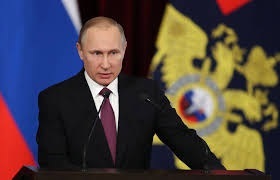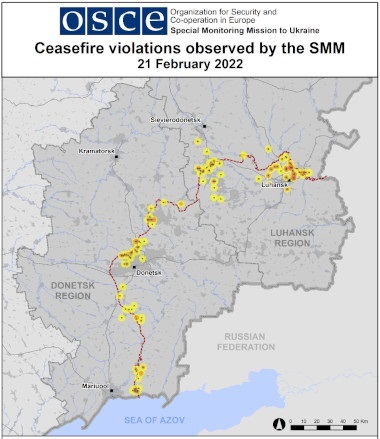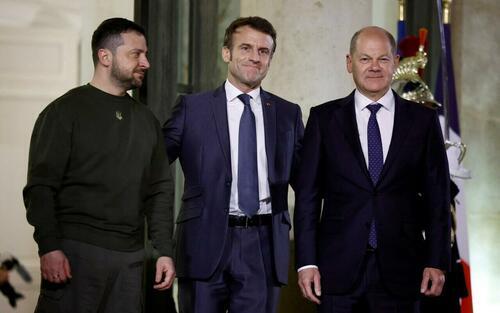Steve Bull's Blog, page 128
February 13, 2023
The Pain of Listening To Twitter Censorship Testimony
Nasty, Ill-Dressed Technocrats, I Want My Life Back
As I type, I am undergoing the excruciating experience of listening to C-SPAN, which is airing “Twitter’s Response to Hunter Biden Laptop Story.” The larger issue is: who censored Twitter, and why, and whether there was illegal collusion (there was) between Twitter and the US government.
So I finally am seeing them — up close, in real life, in person. I am finally able to look at the faces of the heretofore faceless technocrats who took it upon themselves to try to destroy my life and ruin my name.
I am witnessing, as I see them seated primly in rows in a Congressional hearing room, the very faces — the somber, ill-cut but costly blue suits, the bad wire-rimmed glasses, the judgmental expressions — of those who were personally responsible for the misery, trauma, reputational damage, shattered dreams, and loss of income, in my one life, over the course of last two and a half years.
Here at last are the very people who took it upon themselves, or who oversaw their colleagues, to single me out, to collude with the White House, and with Carol Crawford of CDC, and with DHS perhaps, to suspend me — following an accurate tweet of mine that warned women of menstrual harms following mRNA injection.
The positions of these people, the views of them — their self-regarding, self-satisfied, smug certainty that their rightness is the only rightness that could ever be — do not remind me of the testimony or views of actual Americans. They remind me rather of the affect of functionaries in a Stalinist show trial, or of the nameless bureaucrats in Kafka’s The Trial.
…click on the above link to read the rest…
Ramping up wind turbines, solar panels and electric vehicles can’t solve our energy problem
Many people believe that installing more wind turbines and solar panels and manufacturing more electric vehicles can solve our energy problem, but I don’t agree with them. These devices, plus the batteries, charging stations, transmission lines and many other structures necessary to make them work represent a high level of complexity.
A relatively low level of complexity, such as the complexity embodied in a new hydroelectric dam, can sometimes be used to solve energy problems, but we cannot expect ever-higher levels of complexity to always be achievable.
According to the anthropologist Joseph Tainter, in his well-known book, The Collapse of Complex Societies, there are diminishing returns to added complexity. In other words, the most beneficial innovations tend to be found first. Later innovations tend to be less helpful. Eventually the energy cost of added complexity becomes too high, relative to the benefit provided.
In this post, I will discuss complexity further. I will also present evidence that the world economy may already have hit complexity limits. Furthermore, the popular measure, “Energy Return on Energy Investment” (EROEI) pertains to direct use of energy, rather than energy embodied in added complexity. As a result, EROEI indications tend to suggest that innovations such as wind turbines, solar panels and EVs are more helpful than they really are. Other measures similar to EROEI make a similar mistake.
[1] In this video with Nate Hagens, Joseph Tainter explains how energy and complexity tend to grow simultaneously, in what Tainter calls the Energy-Complexity Spiral.
 Figure 1. The Energy-Complexity Spiral from 2010 presentation called The Energy-Complexity Spiral by Joseph Tainter.
Figure 1. The Energy-Complexity Spiral from 2010 presentation called The Energy-Complexity Spiral by Joseph Tainter.According to Tainter, energy and complexity build on each other. At first, growing complexity can be helpful to a growing economy by encouraging the uptake of available energy products…
…click on the above link to read the rest…
February 11, 2023
The Daily: 8 February 2023
As for the right way,
the correct way,
and the only way,
it does not exist.
— Friedrich Nietzsche
(in the Old Farmer's Almanac 2023 Planner)
I do not agree with Nietzsche on many things. Big surprise there, I’m sure. So when I saw this alongside the entry for 8 February in my daily writing planner, I felt it was a sign. Or at least a minor portent.
Recently, in the conversations I have been having here and there with many people, there has been a running theme — what we (universal) need to do (also universal). One of the professors who comes into our store each day held forth on this subject for so long that there was audible eye-rolling from the kids. This is also a trope on many of the blog sites and podcasts I favor, even those that ought to know better. Ought to have read Nietzsche anyway.
I am going to trot out another quote, often ascribed to Einstein (someone I do agree with regularly). “We can’t solve problems by using the same kind of thinking we used when we created them.” Or there is this impression of the same sentiment from Audre Lorde: “The master’s tools will never dismantle the master’s house.”
And I will add this of my own making: our future isn’t a problem to be solved.
We do not face one broken thing that we can put back together. We face many things that are working more or less properly — though many aspects of that proper functioning are not going our way — and we can’t solve any of it. But even if there were problems to solve, there would never be one solution. One solution thinking is the tool of the global elite, those who want to retain control through top-down fixes…
…click on the above link to read the rest…
Carbon capture is a fairytale solution to the climate crisis
Scientists have long been clear: this is the most critical decade for climate action. We must cut greenhouse gas emissions in half by 2030. Fortunately, we have the tools to achieve this. It has never been easier or more affordable to start putting climate solutions into practice — tools like renewable energy, electrifying our homes and transportation, and making our buildings and industries more energy efficient.
Of course, this represents a major threat to powerful fossil fuel companies, who for decades have failed to act responsibly when faced with climate science. Historically, fossil fuel companies have worked to cast doubt on climate science.
In recent years, as outright climate denial has become increasingly indefensible, fossil fuel companies have pivoted towards a politics of delay. Their latest scheme: pushing carbon capture, utilization and storage (CCUS).
Oil and gas companies are now trying to paint a picture of a future where we can still have just as much — or more — oil and gas production, but where power plants and oil refineries can capture carbon dioxide from smokestacks and bury the emissions deep in the ground.
However, despite what the oil and gas industry wants us to believe, CCUS is not a climate solution. It’s a distraction from the need for a rapid transformation away from fossil fuel use that is required to keep global warming below catastrophic levels within this decade…
…click on the above link to read the rest…
The Big Stiff: Russia-Iran dump the dollar and bust US sanctions
 Photo credit: The CradleThe agreement between the Central Banks of Russia and Iran formally signed on 29 January connecting their interbank transfer systems is a game-changer in more ways than one.
Photo credit: The CradleThe agreement between the Central Banks of Russia and Iran formally signed on 29 January connecting their interbank transfer systems is a game-changer in more ways than one.Technically, from now on 52 Iranian banks already using SEPAM, Iran’s interbank telecom system, are connecting with 106 banks using SPFS, Russia’s equivalent to the western banking messaging system SWIFT.
Less than a week before the deal, State Duma Chairman Vyachslav Volodin was in Tehran overseeing the last-minute details, part of a meeting of the Russia-Iran Inter-Parliamentary Commission on Cooperation: he was adamant both nations should quickly increase trade in their own currencies.
Ruble-rial trade
Confirming that the share of ruble and rial in mutual settlements already exceeds 60 percent, Volodin ratified the success of “joint use of the Mir and Shetab national payment systems.” Not only does this bypass western sanctions, but it is able to “solve issues related to mutually beneficial cooperation, and increasing trade.”
It is quite possible that the ruble will eventually become the main currency in bilateral trade, according to Iran’s ambassador in Moscow, Kazem Jalali: “Now more than 40 percent of trade between our countries is in rubles.”
Jalali also confirmed, crucially, that Tehran is in favor of the ruble as the main currency in all regional integration mechanisms. He was referring particularly to the Russian-led Eurasian Economic Union (EAEU), with which Iran is clinching a free trade deal.
…click on the above link to read the rest…
Setting the Record Straight; Stuff You Should Know About Ukraine

On February 16, 2022, a full week before Putin sent combat troops into Ukraine, the Ukrainian Army began the heavy bombardment of the area (in east Ukraine) occupied by mainly ethnic Russians. Officials from the Observer Mission of the Organization for Security and Co-operation in Europe (OSCE) were located in the vicinity at the time and kept a record of the shelling as it took place. What the OSCE discovered was that the bombardment dramatically intensified as the week went on until it reached a peak on February 19, when a total of 2,026 artillery strikes were recorded. Keep in mind, the Ukrainian Army was, in fact, shelling civilian areas along the Line of Contact that were occupied by other Ukrainians.
We want to emphasize that the officials from the OSCE were operating in their professional capacity gathering first-hand evidence of shelling in the area. What their data shows is that Ukrainian Forces were bombing and killing their own people. This has all been documented and has not been challenged.
So, the question we must all ask ourselves is this: Is the bombardment and slaughter of one’s own people an ‘act of war’?
 Map from Moon of Alabama
Map from Moon of AlabamaWe think it is. And if we are right, then we must logically assume that the war began before the Russian invasion (which was launched a full week later) We must also assume that Russia’s alleged “unprovoked aggression” was not unprovoked at all but was the appropriate humanitarian response to the deliberate killing of civilians. In order to argue that the Russian invasion was ‘not provoked’, we would have to say that firing over 4,000 artillery shells into towns and neighborhoods where women and children live, is not a provocation? Who will defend that point of view?
…click on the above link to read the rest…
February 10, 2023
Is There an Off-Ramp for Civilization?
Our high-tech civilization is like an ageing man in full denial of his mortality. It is eating his children just to live a day longer, rather than admitting that its craving for immortality is founded on nothing more than magical thinking. In its firm belief that technology can save it, it is constantly looking for “solutions” on the predicament of its death, actively poisoning its kin with chemicals, heavy metals and radioactive waste from mining and production. Is there a last chance for it change course?
 Photo by Efe Kurnaz on Unsplash
Photo by Efe Kurnaz on UnsplashEvery civilization is built around a set of unquestionable beliefs, with a considerable number of them dealing with death itself. Although many devout followers of modernity claim that they are fully aware of their mortality, deep inside they are still in denial. There is no end to the row of books, articles and publications on how singularity will come, how we will upload our consciousness into the cloud, how AI will take care of us and ultimately: how our digital technology will eventually make our souls immortal (1) once our bodies are gone.
According to this belief system, we will eventually free ourselves from the muddy reality of our biological origin, full of bacteria, viruses, illness and misery. The road to this modernist Nirvana starts with growing food in sterile steel and glass halls under artificial LED light, and elongating our lifespans with gene therapy — and if death does come for one before we get there, then there are plenty of options for a cryogenic afterlife in a nice and shiny metal tube.
…click on the above link to read the rest…
February 9, 2023
With 1.5°C Goal ‘Currently Not Plausible,’ Study Calls for Focus on Deep Social Change
“In order to be equipped for a warmer world, we have to anticipate changes, get the affected parties on board, and take advantage of local knowledge,” said one researcher.
Scientists at the University of Hamburg in Germany argued Wednesday that meeting the 2015 Paris climate agreement’s goal of limiting planetary heating to 1.5°C is “currently not plausible”—but warned that despairing over climate “tipping points” risks taking attention away from “the best hope for shaping a positive climate future… the ability of society to make fundamental changes.”
The Hamburg Climate Futures Outlook assessed the planetary impacts of several “physical processes that are frequently discussed as tipping points.” These include the melting of sea ice in the Arctic and glaciers at the North and South Poles; the weakening of the Atlantic Meridional Overturning Circulation (AMOC), the system of ocean currents that carries warm water upward into the North Atlantic; and “dieback” in the Amazon rainforest, in which rising temperatures would dry out trees and eventually change the forest landscape into a savanna, releasing billions of tons of stored carbon.
Those scenarios “are serious developments,” said researchers at the university, but the melting of ice “will have very little influence on the global temperature until 2050.” The weakening of AMOC and Amazon dieback will have a “moderately” greater influence on global temperatures.
“Human agency has a large potential to shape the way climate futures will evolve.”
“By extrapolating current trends,” reads the study, “permafrost thaw and Amazon Forest dieback are expected to release somewhat more than one year’s worth of today’s anthropogenic CO2 emissions between now and 2050. Thus, the contributions of these two processes to the remaining carbon budget are small…
…click on the above link to read the rest…
Marching Into the New Year with World Wars III, IV, and V (Part 1)

Photograph Source: Mvs.gov.ua – CC BY 4.0
Last year, right after Russian troops entered Ukraine, I said that we were already in World War III between the US/NATO and Russia (“WWIII is not a remote possibility. We are already in it”). I’ve repeated that a number of times, and in October, gave even odds on the chance of nuclear war. Since then, actions and statements of principals on both sides of the conflict have only confirmed and worsened that assessment.
Regarding statements, we had Ukraine’s former president, hand-picked by Victoria Nuland, admitting in November that Ukraine used the Minsk Agreements to build a NATO army, to “train the Ukrainian military together with NATO to create the best armed forces in Eastern Europe, created according to NATO standards.” That admission was confirmed in December by Angela Merkel, who said that Minsk “was an attempt to buy time for Ukraine… to become stronger, as you can see today.” It was re-confirmed by François Hollande, who said, “Yes, Angela Merkel is right on this point.” And it was quite emphatically confirmed in January by Ukraine’s Defense Minister, Oleksii Reznikov, who said that Ukraine has “already become a de facto member of the NATO alliance” that is “carrying out NATO’s mission today,” “defending the entire civilized world, the entire West,” and would “absolutely” enter formally into NATO.
The kicker, of course, is German Foreign Minister Annalena Baerbock’s recent statement that “We are fighting a war against Russia.” It’s a war against Russia she intends to prosecute for “as long as” necessary, “No matter what my German voters think.”
…click on the above link to read the rest…
Macron Says Russia Cannot Win Against Ukraine
After a surprise UK visit, Ukraine’s President Zelensky went to Paris immediately afterward in a whirlwind European tour to meet with Western leaders. In Paris he held talks with French President Emmanuel Macron and German Chancellor Olaf Scholz
Macron asserted during the visit that Russia cannot win the war against Ukraine. “Ukraine can count on France, its European partners and allies to win the war. Russia cannot and must not win,” Macron said before a working dinner among the three leaders at the Elysee Palace.
 Via Reuters
Via ReutersJust ahead of the meeting, Zelensky in an interview with Le Figaro hailed a change of heart in Macron. “I think he has changed, and changed for real this time,” Zelensky said. “After all, it is he who paved the way for the delivery of tanks. And he has also supported Ukraine’s membership to the EU. I think that was a real signal.”
Macron had angered Kiev when in June he said the West must not “humiliate Russia, so that when the fighting stops we can build an exit ramp through diplomatic means.”
Macron has also come under fire for being among the only Western leaders to hold frequent phone conversations with President Vladimir Putin, in order to attempt a diplomatic breakthrough towards ending the war. But Ukrainian leaders have suggested such diplomatic efforts are a form of ‘capitulation’.
As for Macron’s slow pivot away from pursuing a diplomatic offramp, the Associated Press now describes:
Macron has said France hasn’t ruled out sending fighter jets but set conditions, including not leading to an escalation of tensions or using the aircraft “to touch Russian soil,” and not resulting in weakening “the capacities of the French army.”
…click on the above link to read the rest…



